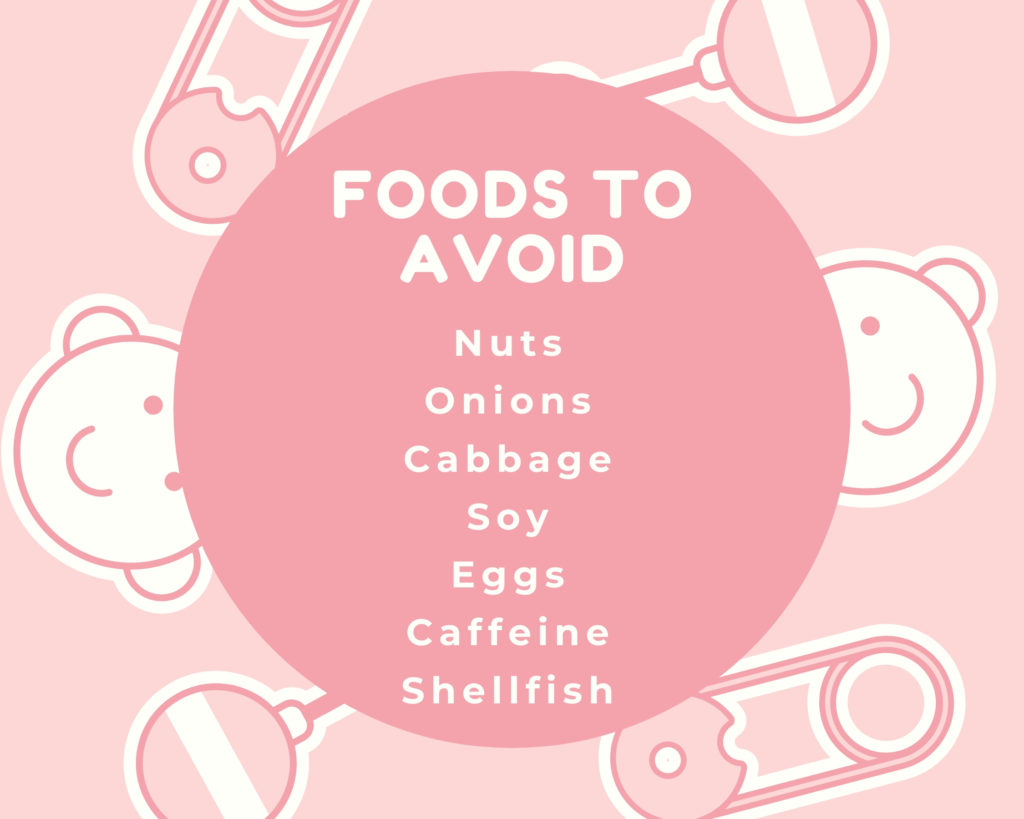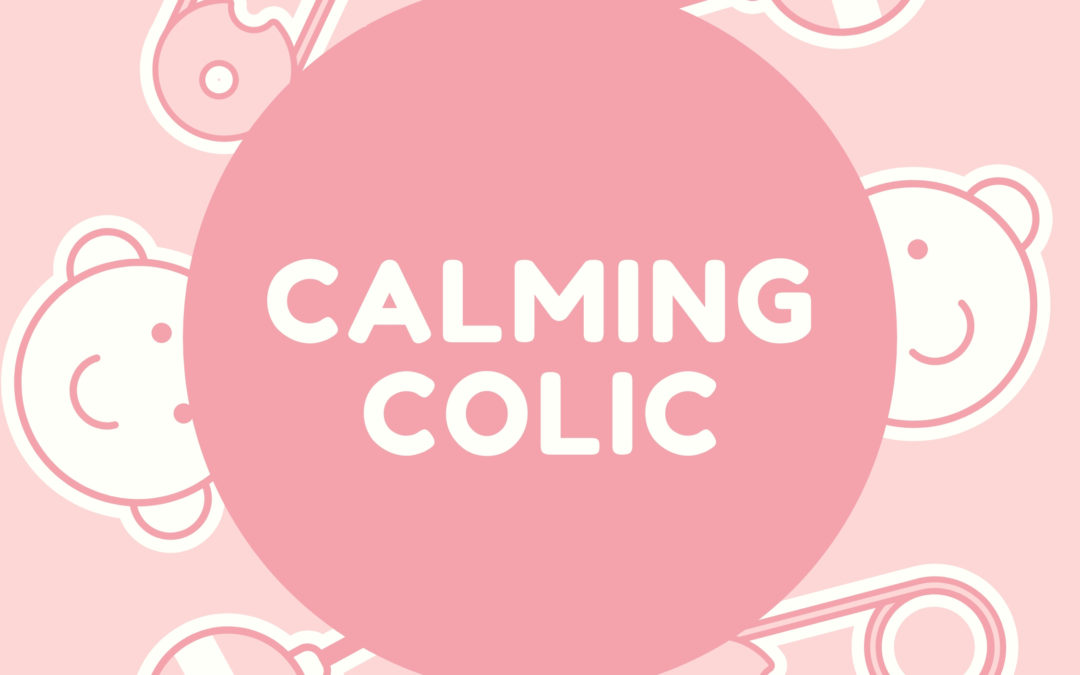What is colic? How can it be managed? And what if I find myself overwhelmed as the parent to a colicky baby?
Let’s face it – your newborn baby is going to cry. And some new babies cry a lot! It can be heartbreaking when you want to soothe your baby but are unable.
It’s quite normal for babies to get fussy at the same time each day. Quite often, this fussy period happens in the evening. Most newborn babies cry for about an hour and a half each day. The reasons can vary. Baby might be hungry, tired, or overstimulated. It might be that a wet or dirty diaper triggers your baby’s crying spell. Sometimes digestion issues can cause problems. But how can you tell the difference between typical newborn crying and colic?
What is colic?
According to the American Academy of Pediatrics, as many as two in five babies develop colic. A baby is labeled “colicky” if he or she cries more than three hours a day, three days a week. This period of colic generally starts when the baby is two or three weeks old. In most cases, if there is no underlying physical problem, colic should start to lessen around the time baby is about eight weeks old. Most colic ends by the time baby is four months old.
Breastfeeding and Colic
If you’re breastfeeding your newborn and baby is colicky, this could indicate an underlying nursing issue. One common nursing issue is called an over-active letdown. This is when your milk lets down too fast. Your baby then has to gulp to keep up with the flow. Baby then swallows too much air and gets a stomachache. If this is the case, simply express some milk prior to nursing your baby. When your flow slows down, it’s time to nurse.
Sometimes certain foods that mom eats seems to be the cause of colic; or at the very least, further serve to irritate a colicky baby. These foods can include:
- Nuts
- Onions
- Cabbage
- Soy
- Eggs
- Caffeine
- Shellfish
If you baby is colicky consider limiting these foods from your diet. If you wish to learn which foods might be the cause, consider cutting out the above instigators, and then add them back into your diet one at a time. If baby’s crying or fussing gets worse with a specific food, you will then be able to discern which food(s) bother baby.

Some doctors also suggest taking a probiotic if you’re breastfeeding a colicky baby. Early research has shown that it can reduce your baby’s discomfort and crying as probiotics aid in digestion.
Issues with latch can also worsen the symptoms of colic. Working with a lactation consultant, family doctor, or pediatrician can often help nursing mothers to ascertain whether or not there is an issue with baby’s latch. In some cases, latch issues can be the result of a tongue or lip tie. These are easily fixed by an oral surgeon, ENT, or sometimes by a pediatric dentist.
Formula and Colic
When feeding your baby formula, there’s a chance that the formula or the bottle you’re using could be causing indigestion issues. Unfortunately, the only way to find out is through trial and error. Work with your doctor to ascertain which formulas seem to work best for babies with digestion issues, and consider buying only one or two bottles of a certain variety at a time. This ensures that you do not have an over-abundance of a specific bottle that your little may then be unable to use.
Experts at Healthline Parenthood have compiled a list of the best formula to try if your baby is colicky. Click here to see their recommendations.
The website VeryWellFamily has compiled a list of the best baby bottles to prevent gas and colic. Click here to find that list.
Tricks to Soothe a Colicky Baby
If changing what you feed your baby and how you feed your baby does not seem to ease baby’s colic, there are other things you can do to try to comfort your little. They include but are not limited to:
Walking your baby. After all, baby has been used to the nearly constant movement her or she experienced while in utero. Buy a sling or baby carrier that allows you to wear your baby if you need to get stuff done around the house, or to be available to older siblings.
Rock your baby. The gentle, rhythmic motion can calm and soothe a fussy baby.
Try a pacifier. This can sometimes provide great relief to a fussy baby.
Crank up the white noise. Many babies calm down when white noise is introduced. There are plenty of white noise apps available for download to your phone. However, the peace of the white noise can be interrupted by phone calls, texts. etc. It’s better to generate white noise from a fan or a white-noise-making device. Just be sure to find something that will keep running all night long rather than shutting off after a certain period of time.
“Bicycle” your baby’s legs. Lay your baby on his or her back and move their legs in a way that mimics riding a bicycle. This can help release gas bubbles trapped in your baby’s belly.
Try baby massage. Lay your baby on his or her belly on your lap. Then gently rub and pat baby’s back. This is another way to release gas which may soothe your baby.
Turn down the lights. Some babies get overstimulated by too much bright light.
Take care of your own stress levels. Let’s face it – parenting is stressful, especially if you’re dealing with a baby who won’t stop crying. But try to keep yourself calm and relaxed. Your baby can pick up on your stress and anxiety and will likely react to it.
Try gripe water or colic drops. Many new parents swear by these.
***If you are concerned your infant has colic, consult with your pediatrician or family doctor. Keep a log of baby’s activity including: how long and how often baby sleeps, cries, eats, spits up, wets diapers, and poops. This can help doctors pinpoint any underlying issues that might be causing your baby to cry. And as always, consider consulting with a physician before making any changes to baby’s formula or diet as certain dietary needs must be met at specific ages.***
New Moms Share their Tips to Soothe a Colicky Baby
– Gerber Soothe Probiotics worked for us! ~Anne
-My son is 11 weeks and I do the bicycle kicks with him to ease his crying. ~Stephanie
-Also try warmth on the tummy. ~Chouprinova
-Work with a chiropractor who specializes in babies. ~Lesly
-A warm bath with lavender. ~Amber
-Reducing my sugar intake surprisingly helped extensively. ~Jalena
Getting Help When Parenting a Colicky Baby Becomes too Much
Parenting a colicky baby can be emotionally challenging. In some cases it can lead to child abuse. The National Center on Shaken Baby Syndrome reports that the number one trigger for Shaken Baby Syndrome, or SBS, is frustration with a baby’s crying. If you feel like you might be in a situation where you could harm your baby, it’s important to put baby in a safe place such as a crib or car seat. Then call your doctor or a trusted friend or relative for help. Make sure you have people who can give you a break from your crying baby.
***Exhaustion and stress as a parent to a colicky baby is completely normal. Please know that if you feel overwhelmed, you are not alone. There is no shame in reaching out and asking for a break, or for help. Rather, it shows strength and resilience.***
Jeri Hoag Photography now empowering and instilling confidence through intimate boudoir photography for the everyday modern woman in St. George, UT/ Hurricane, UT/Washington, UT/Leeds, UT/Ivins, UT/Santa Clara, UT/Dammeron Valley, UT/Veyo, UT/Shivwits, UT/Littlefield, AZ /Las Vegas, NV/Mesquite, NV.

